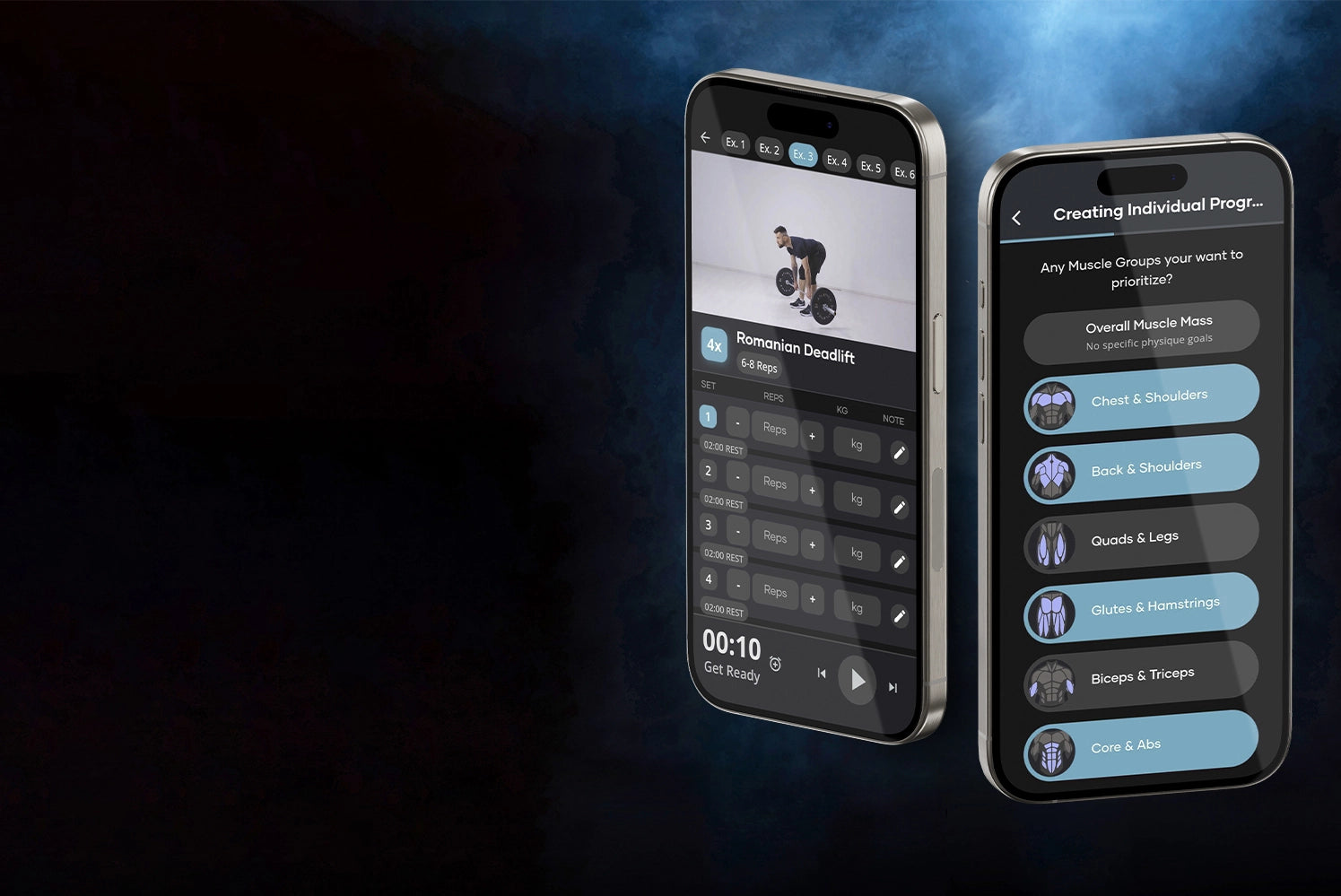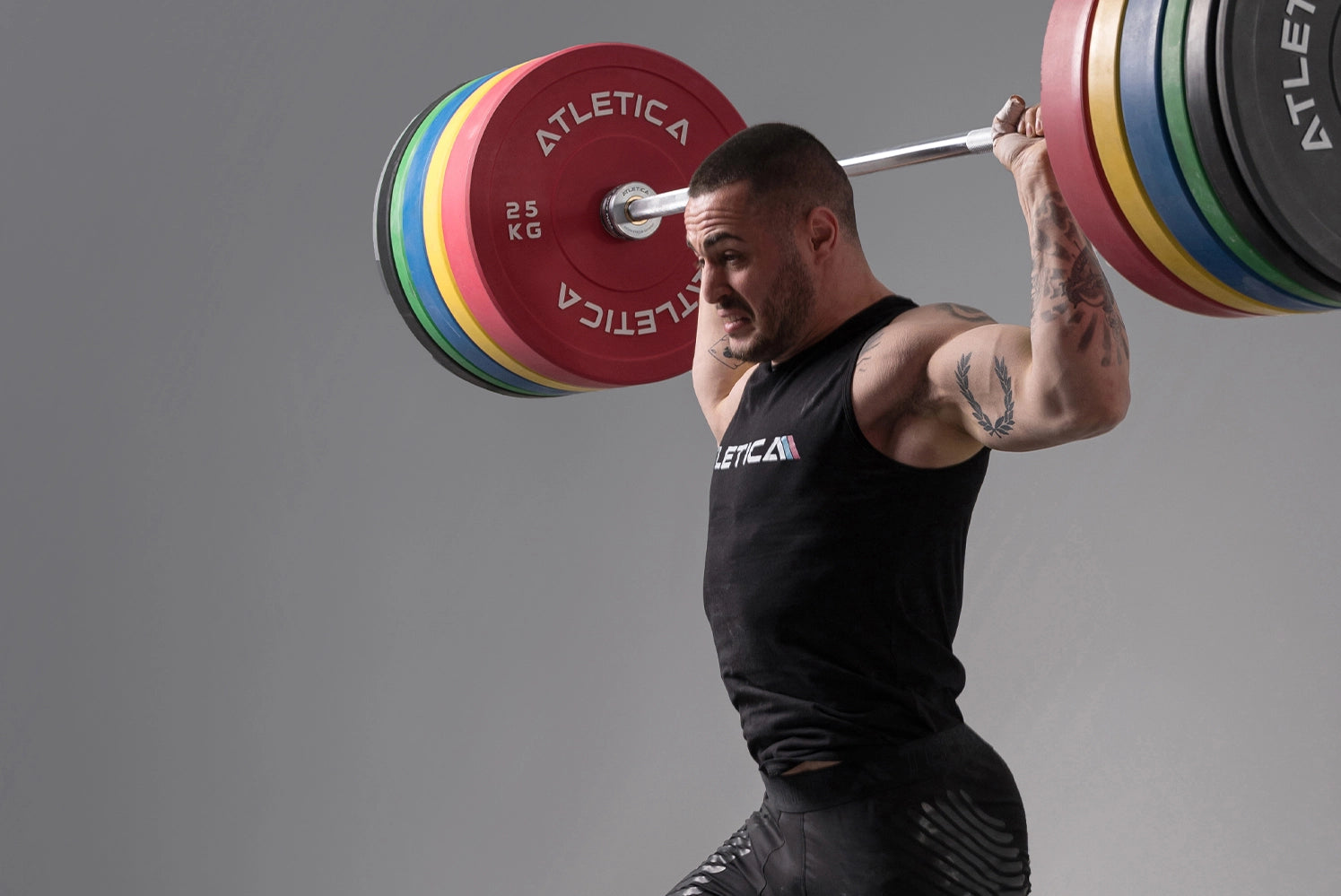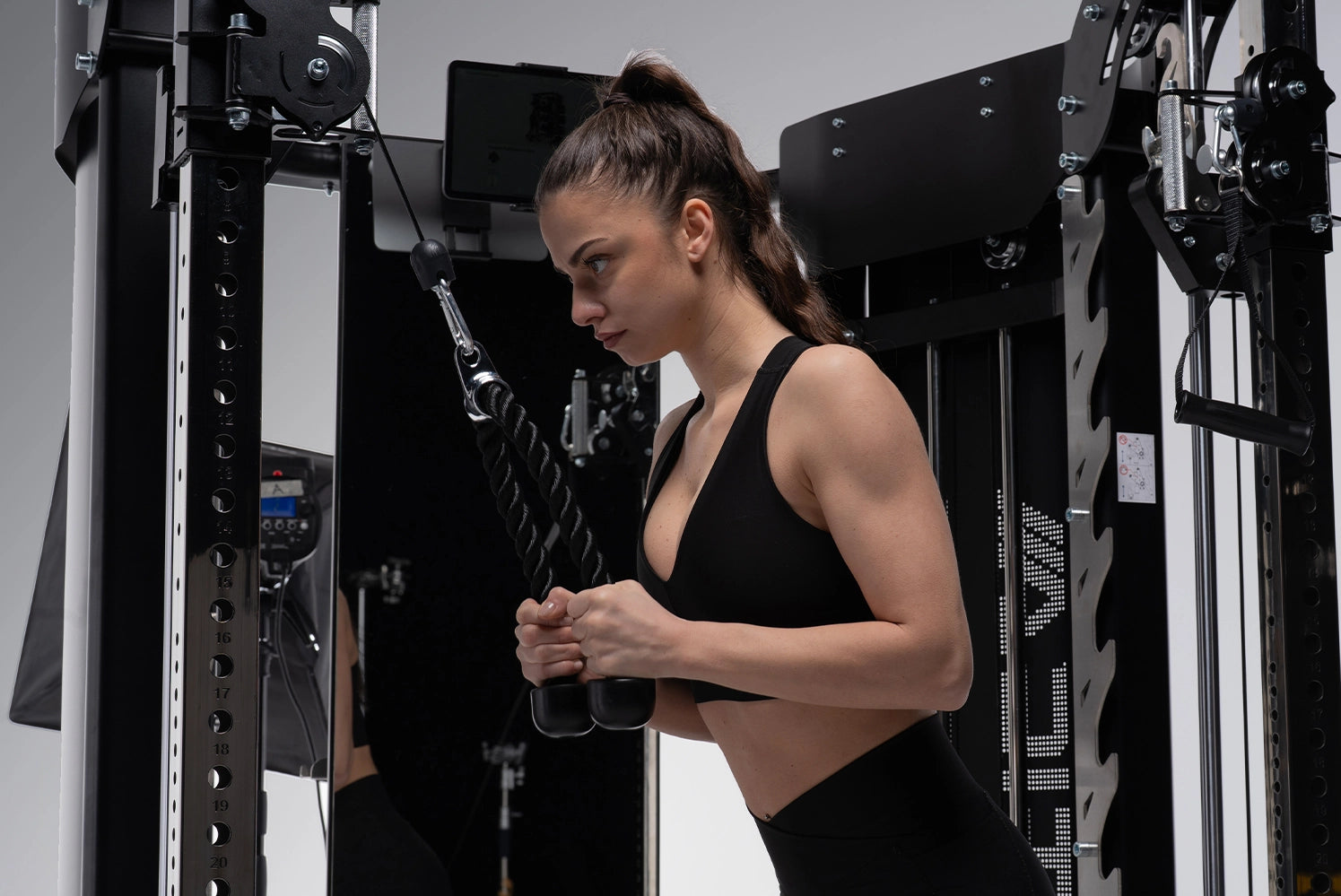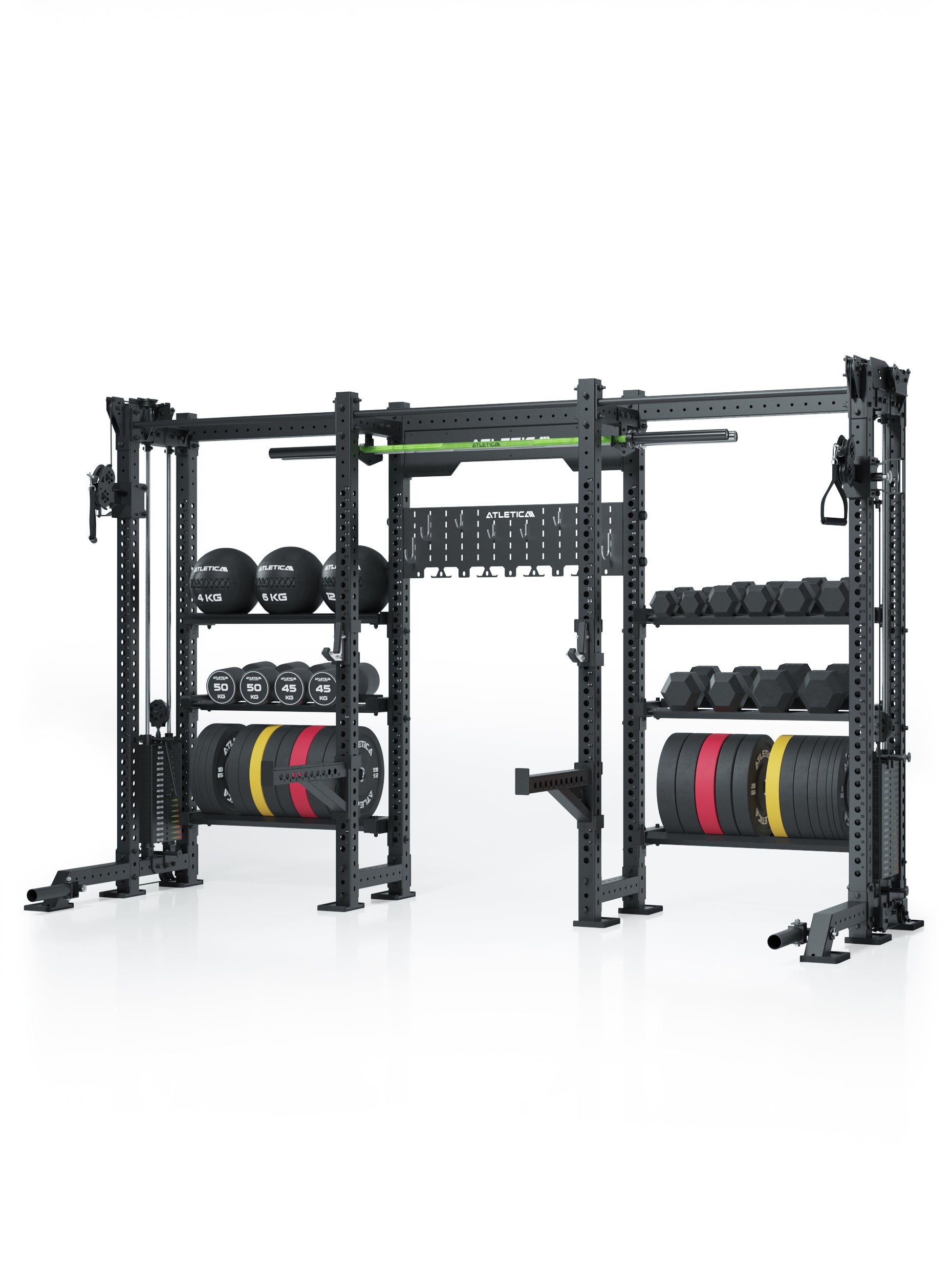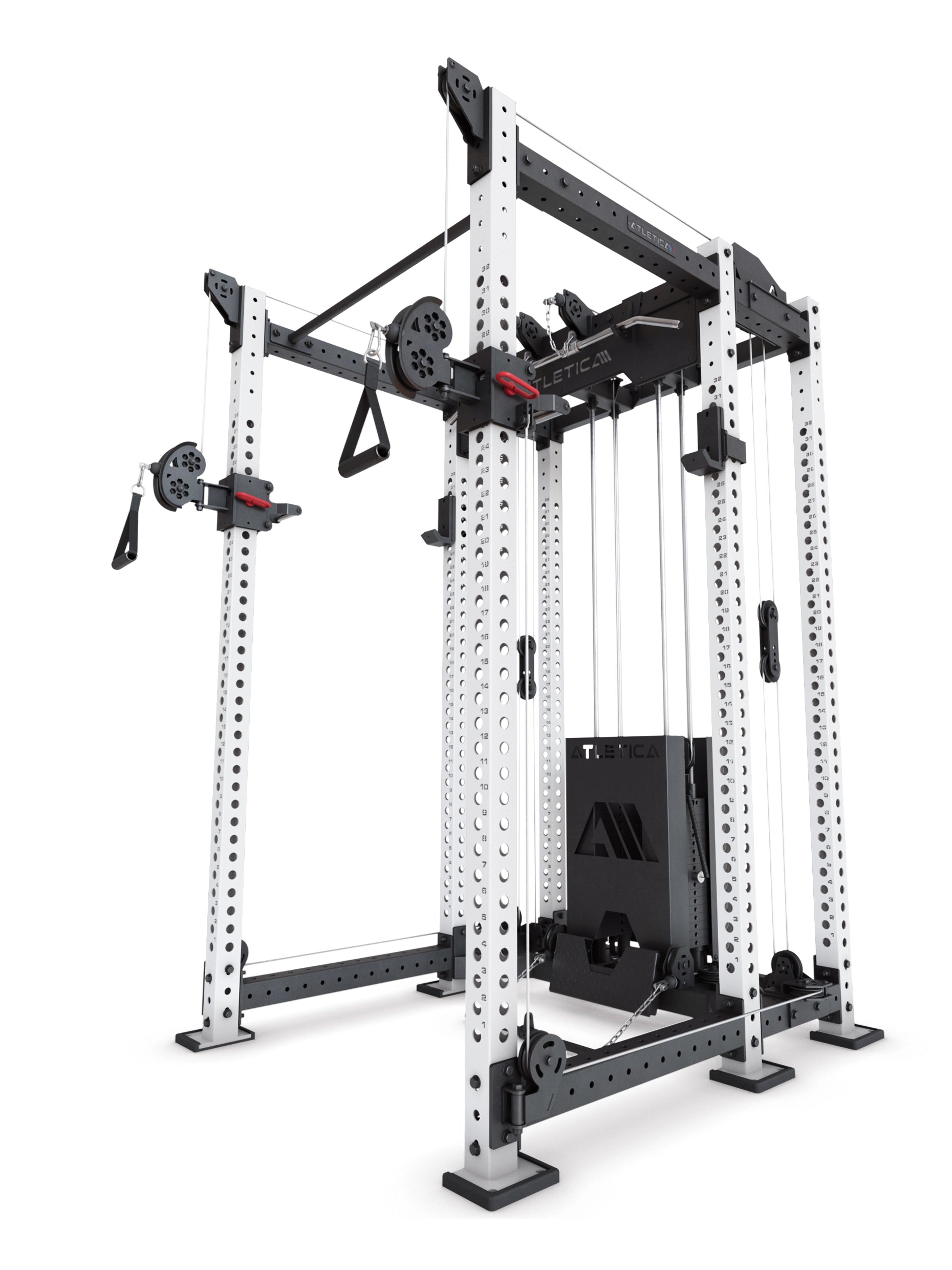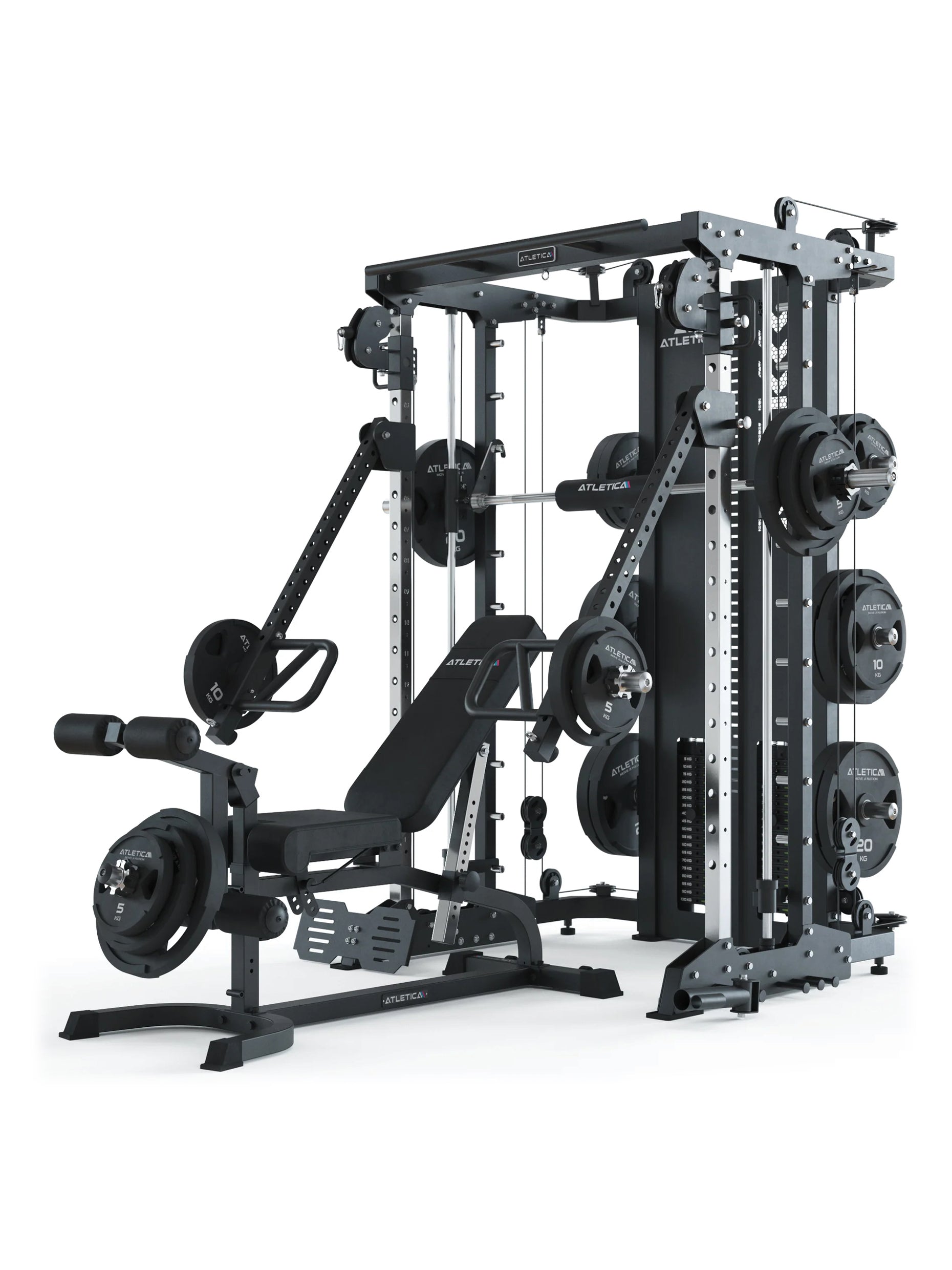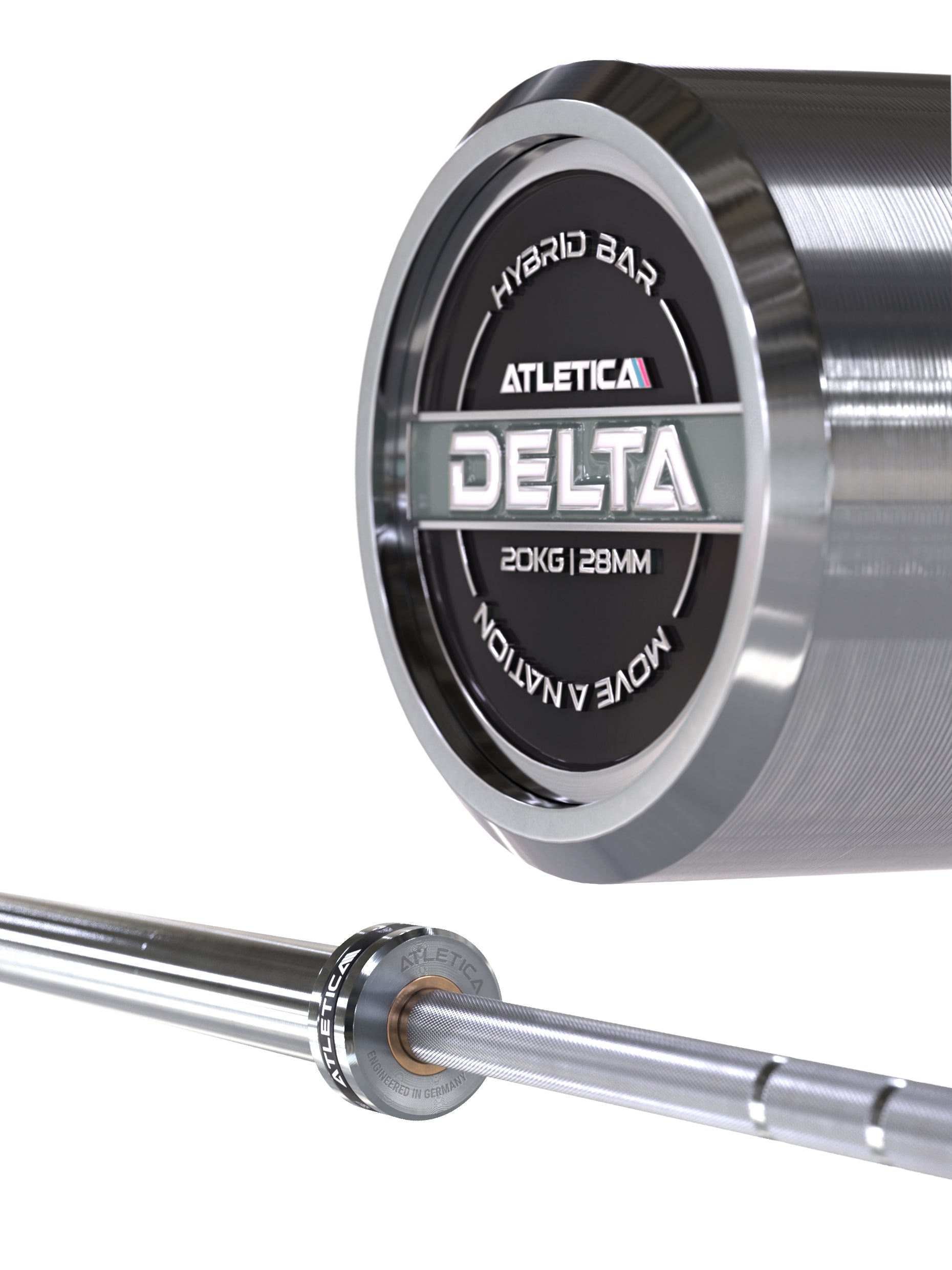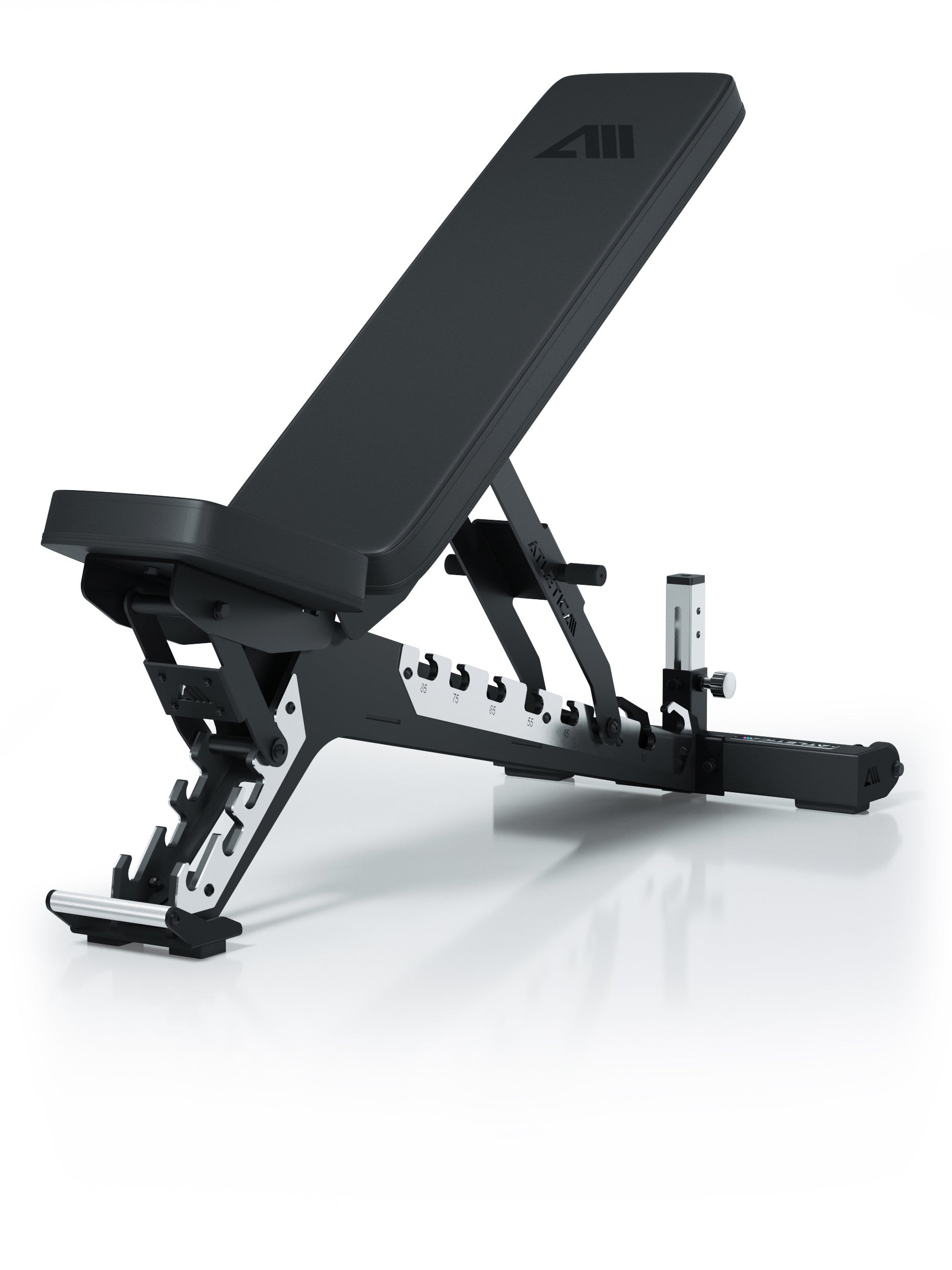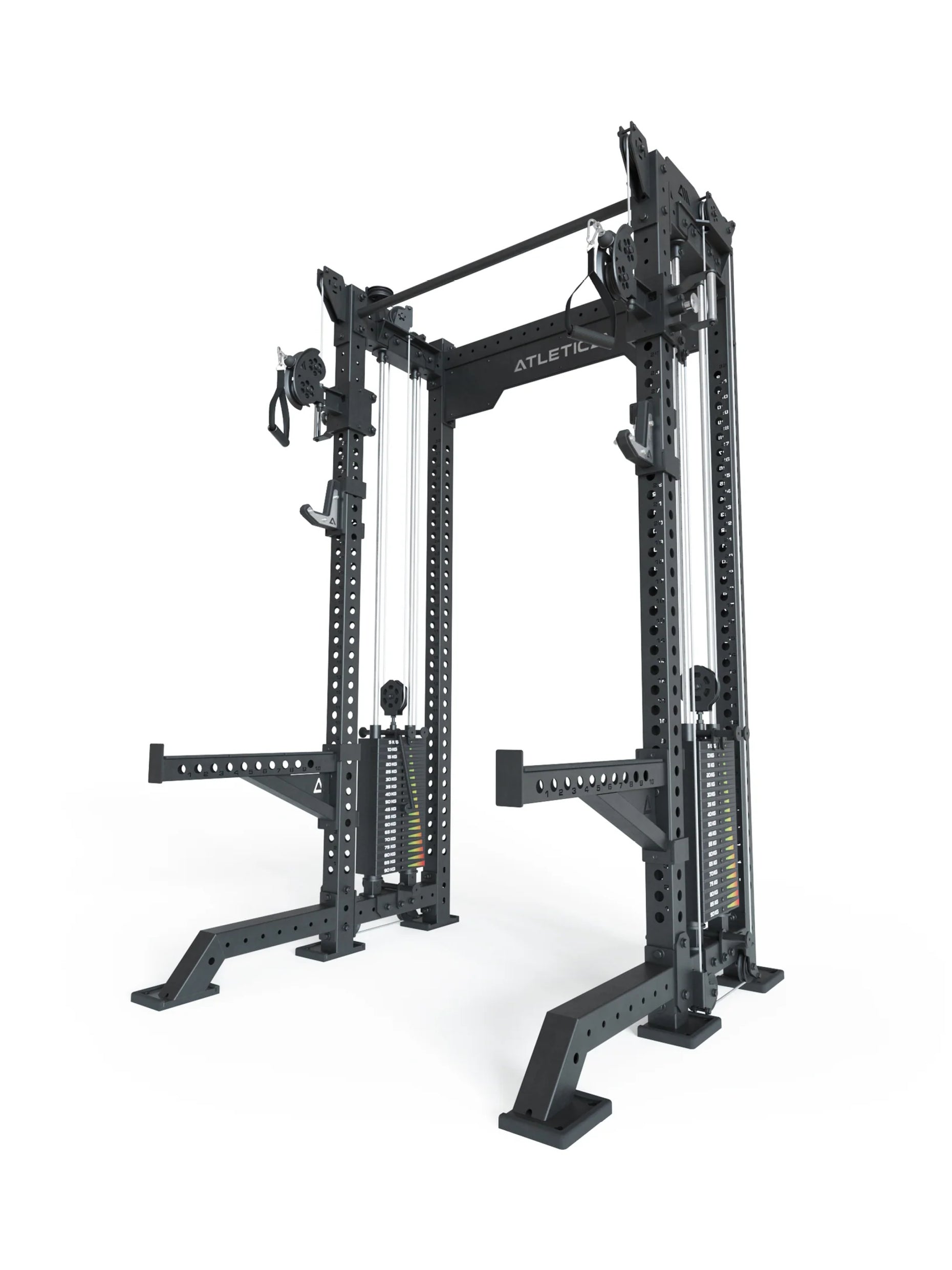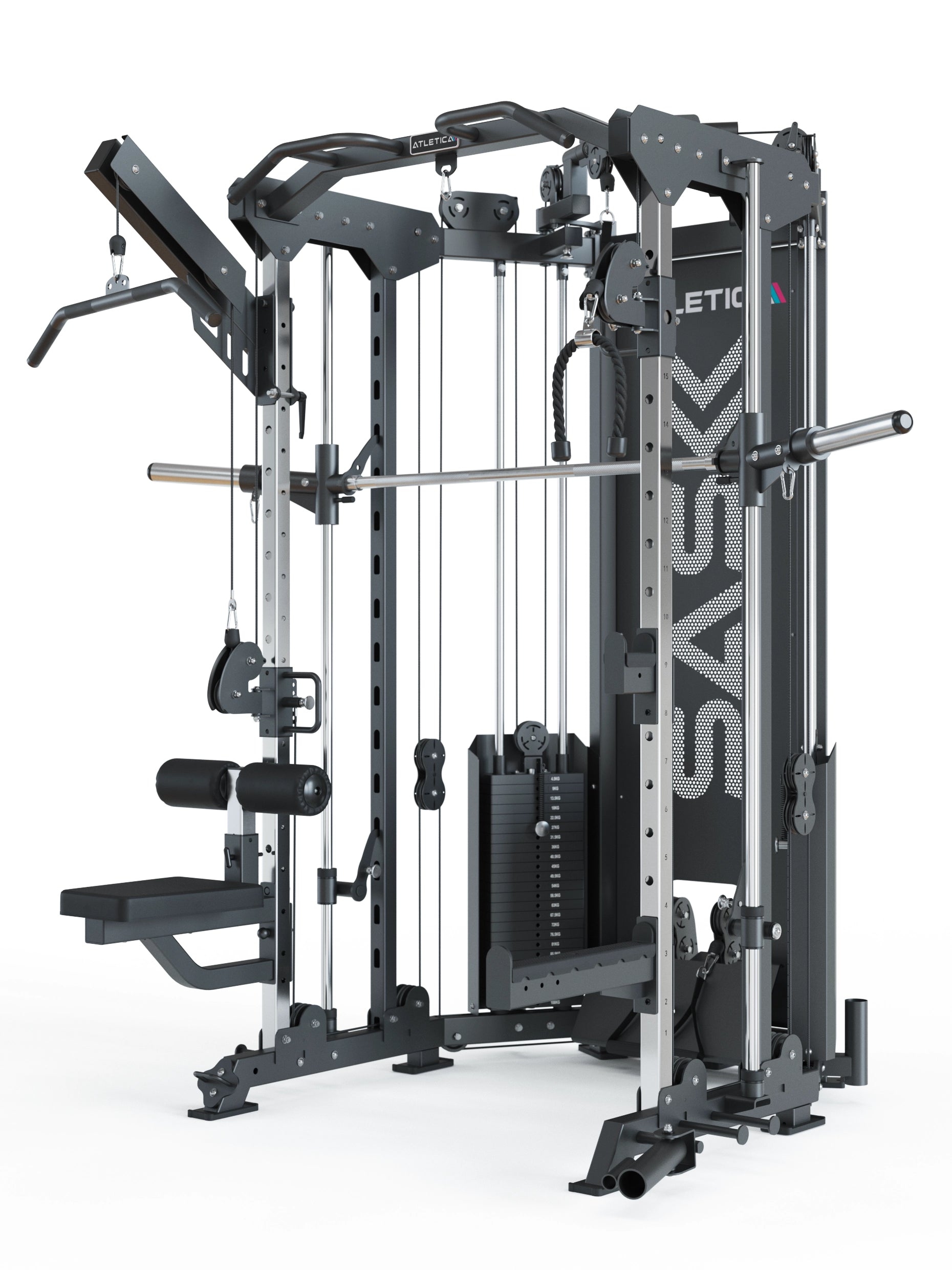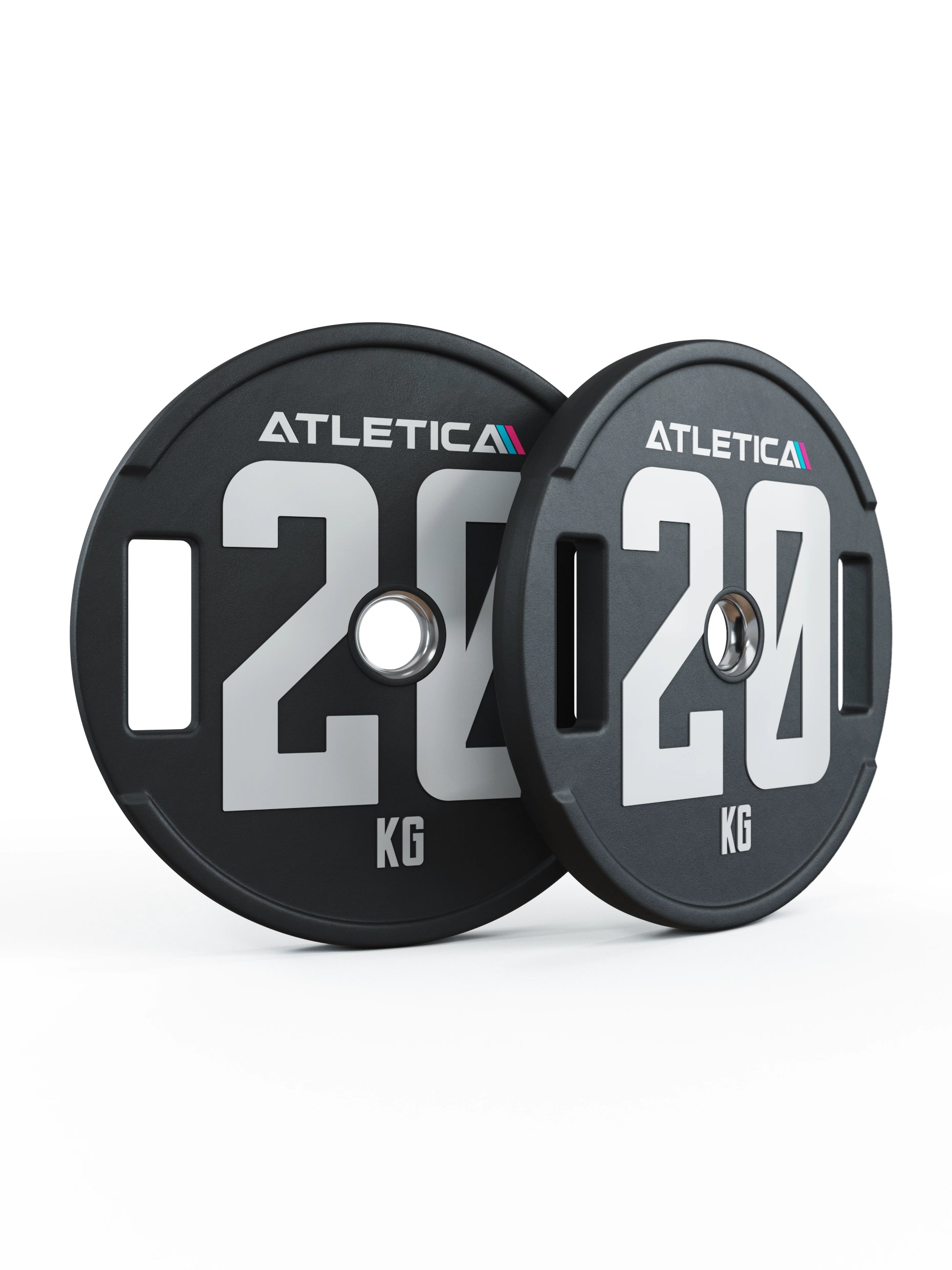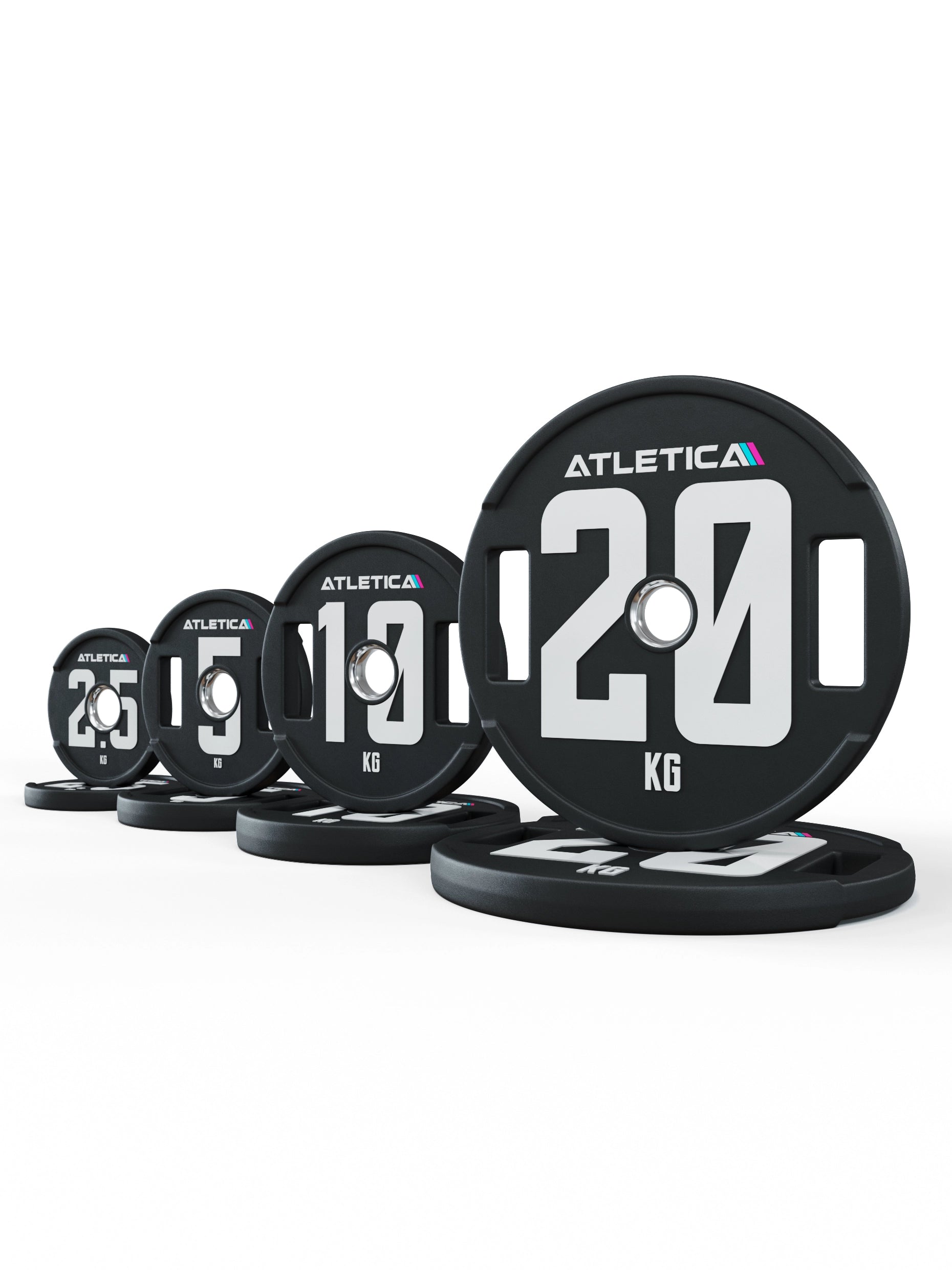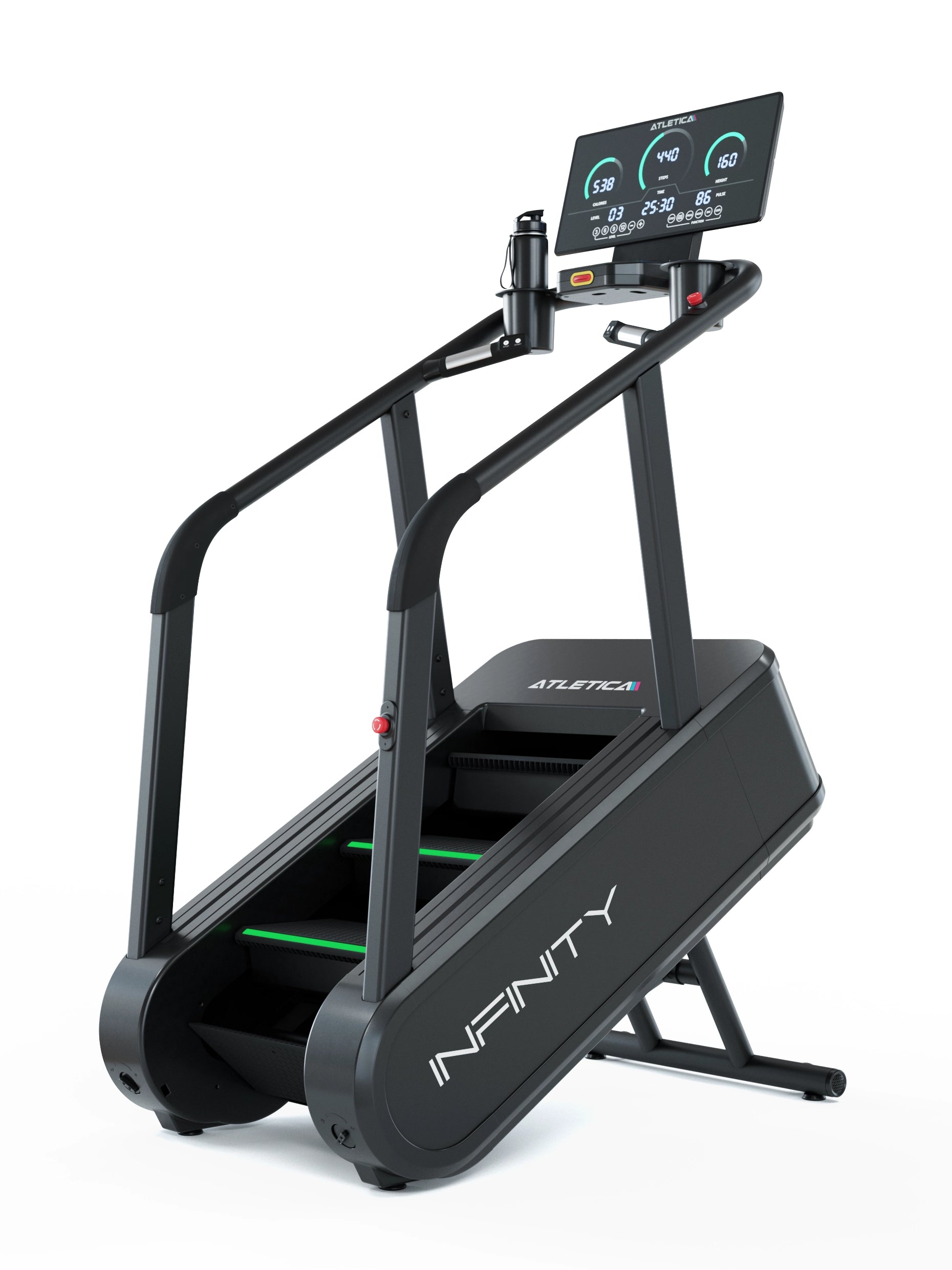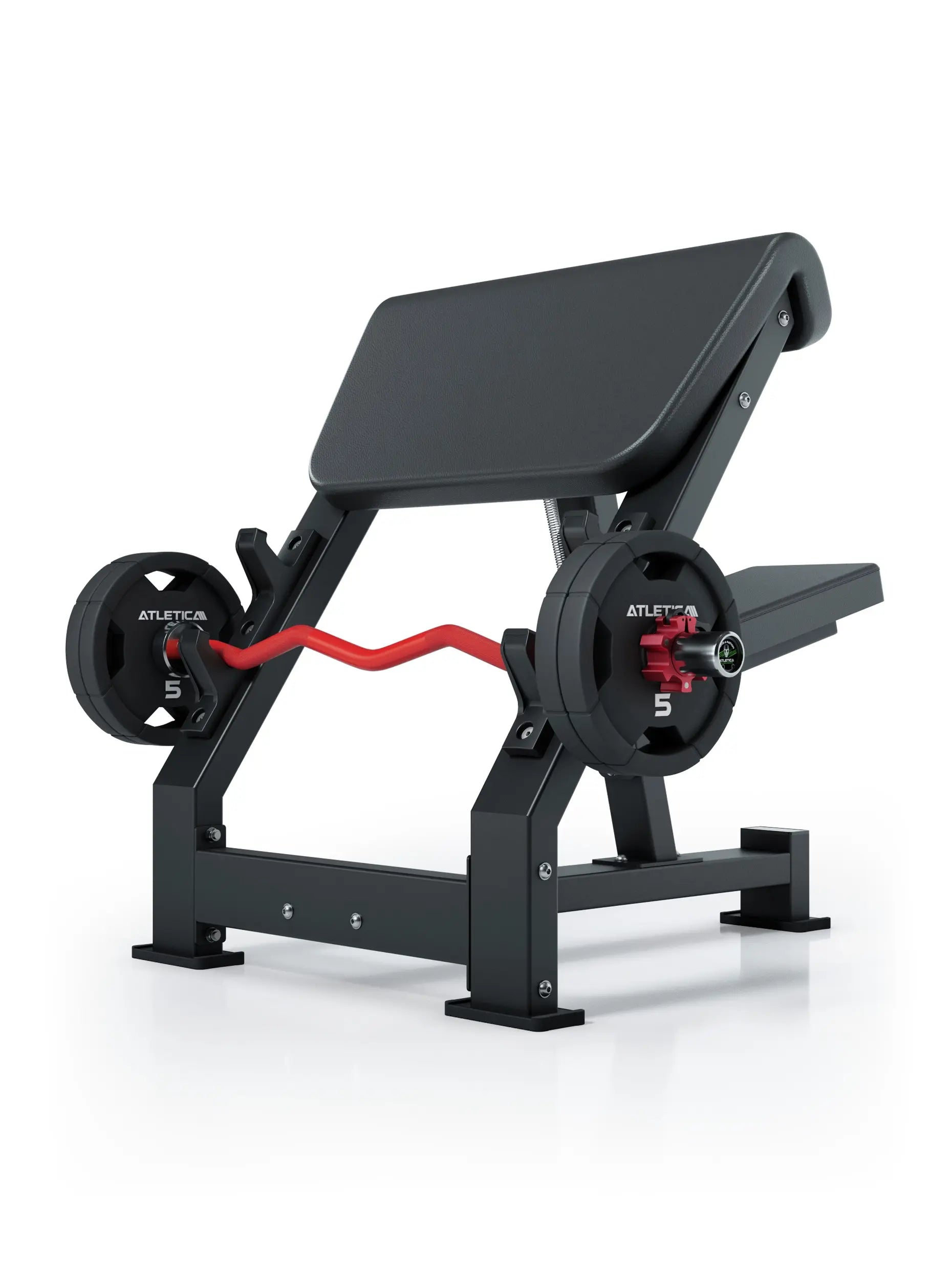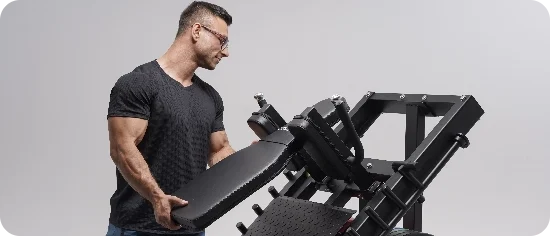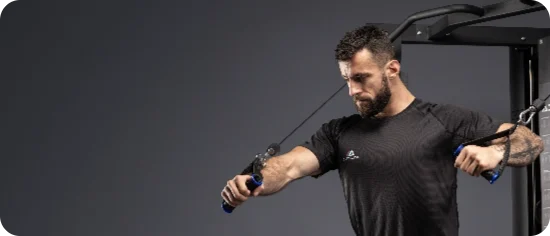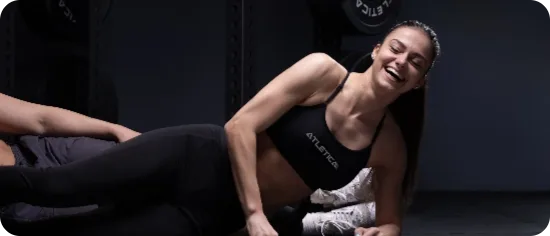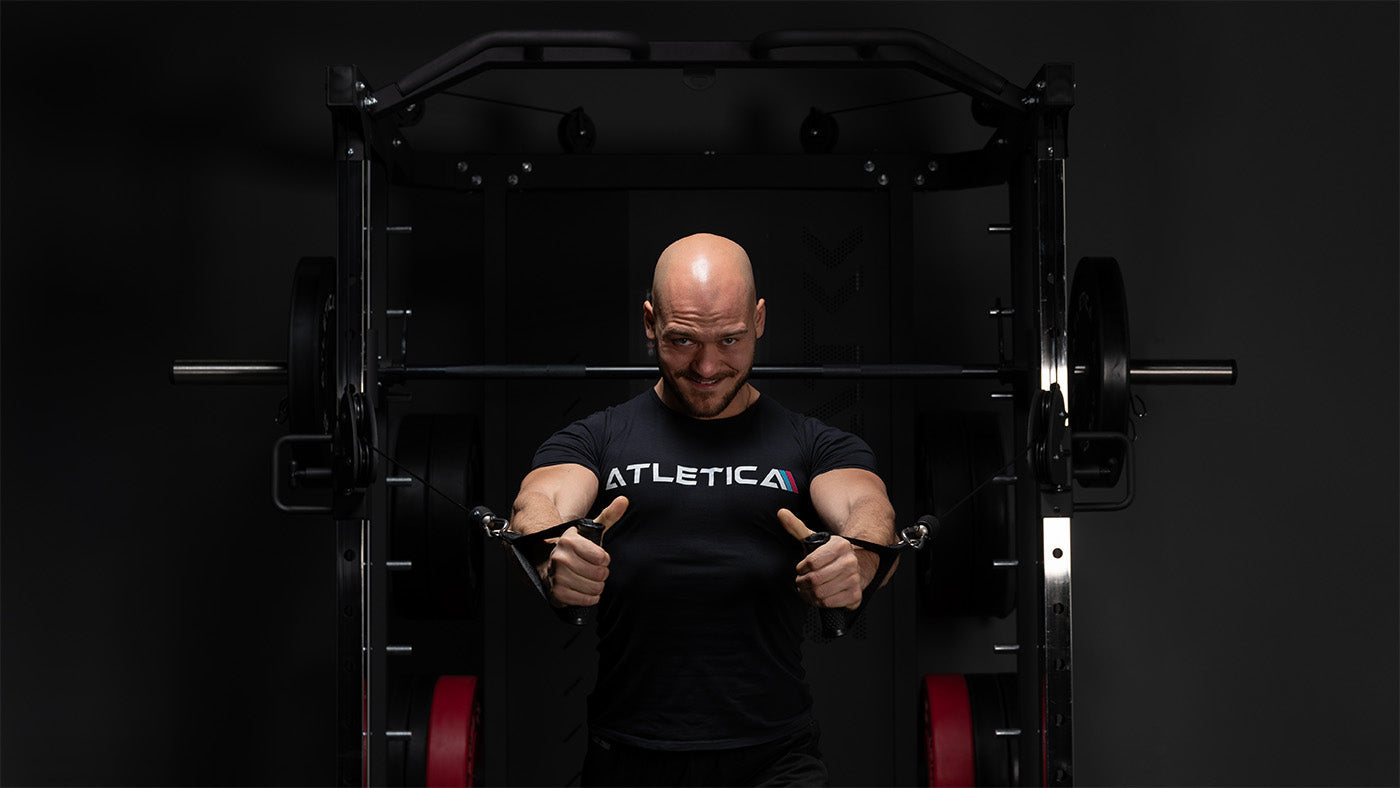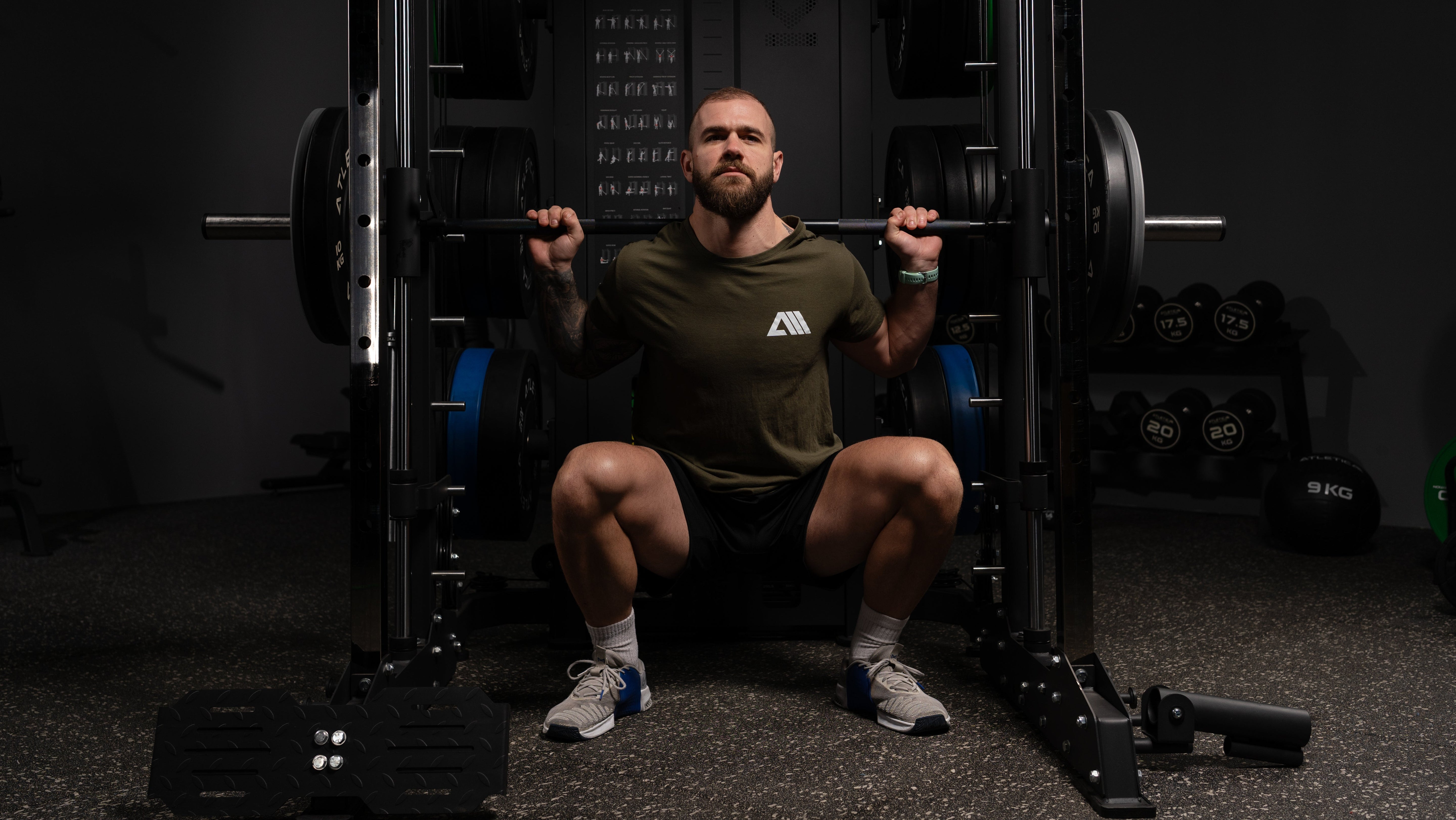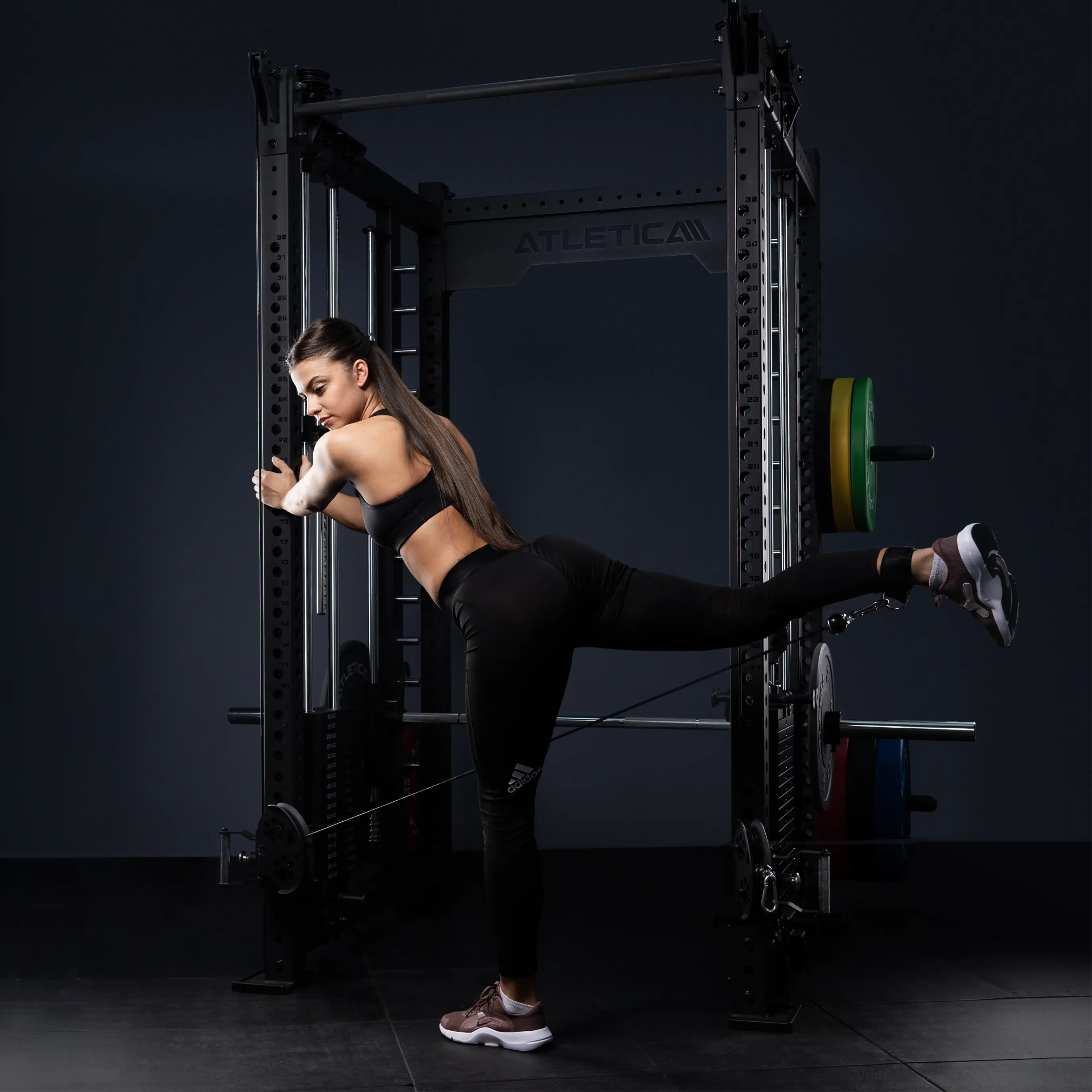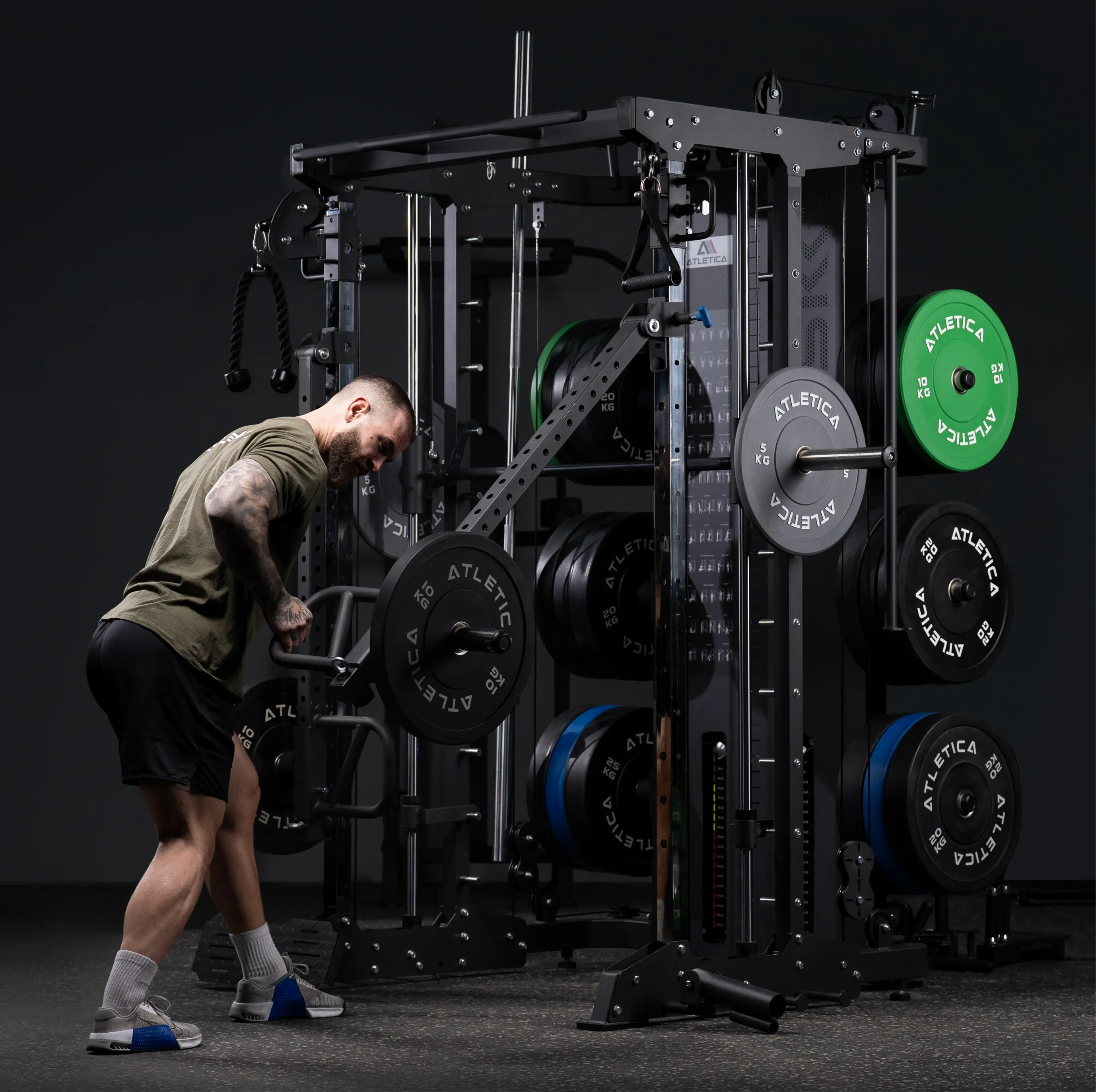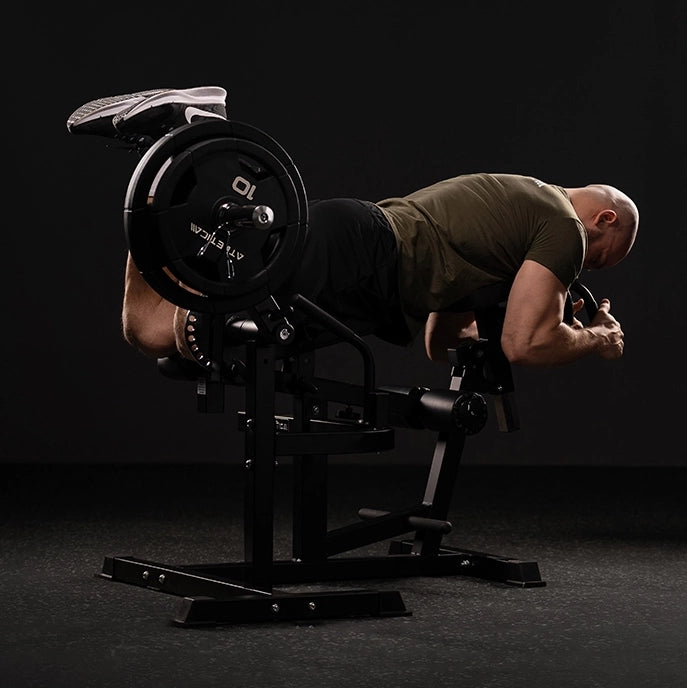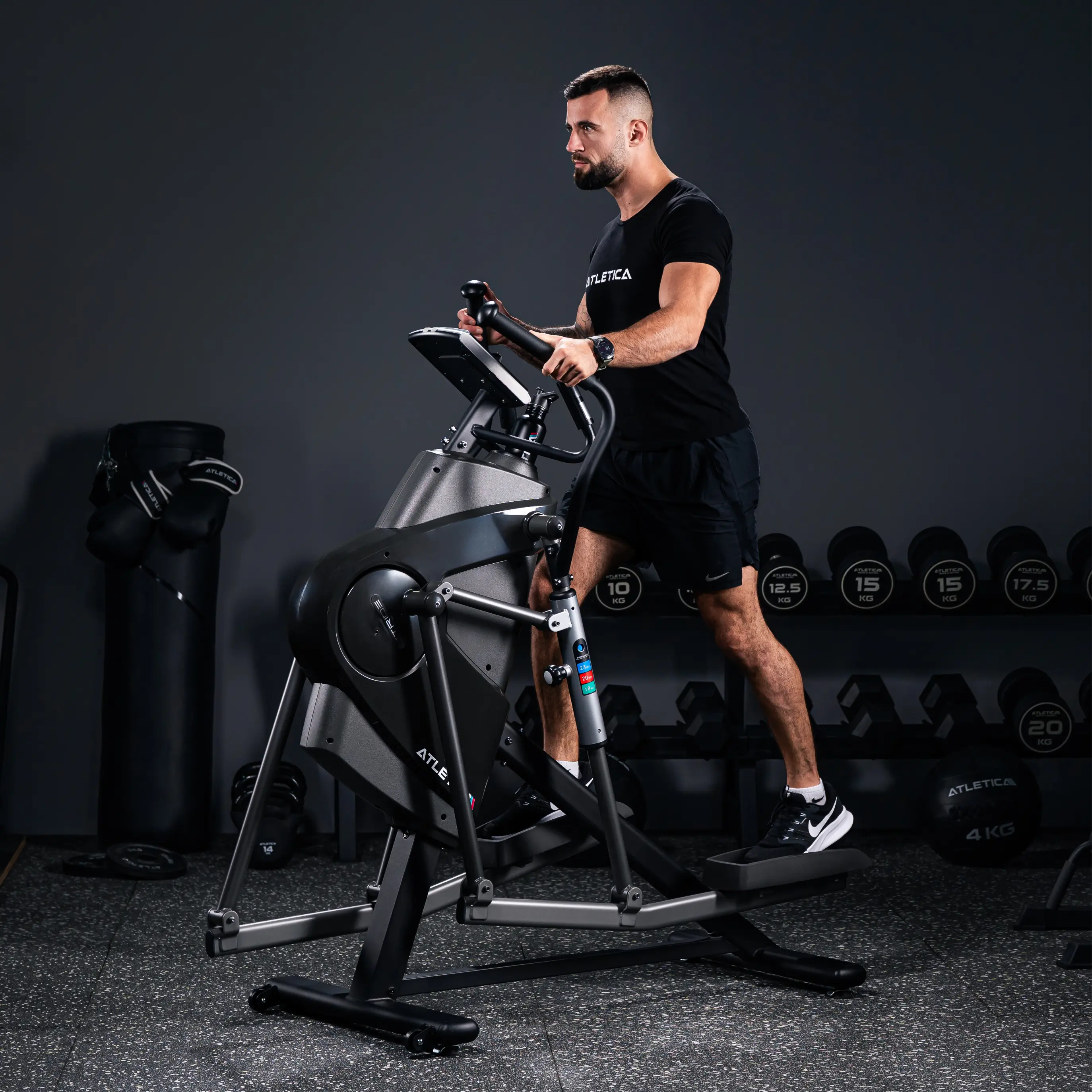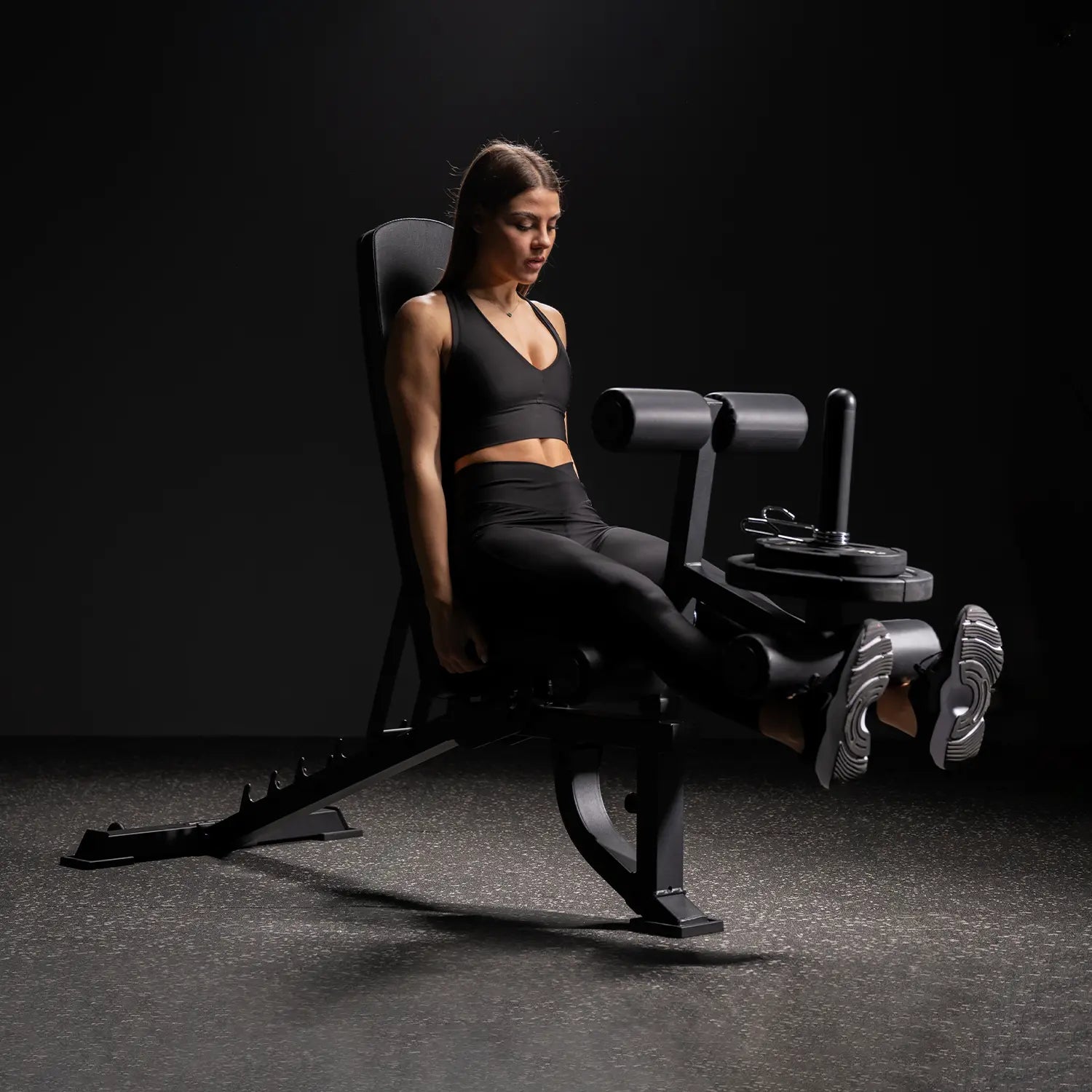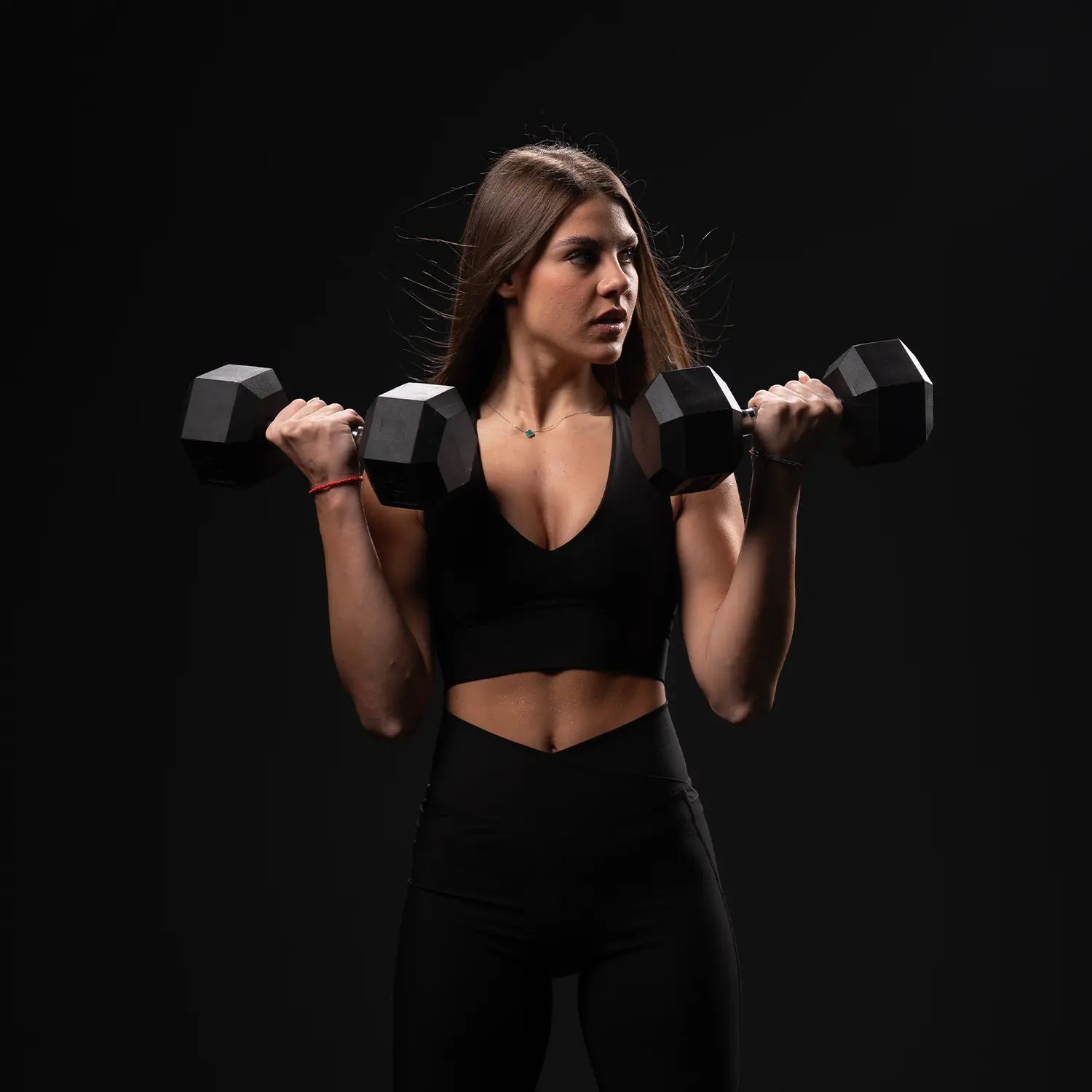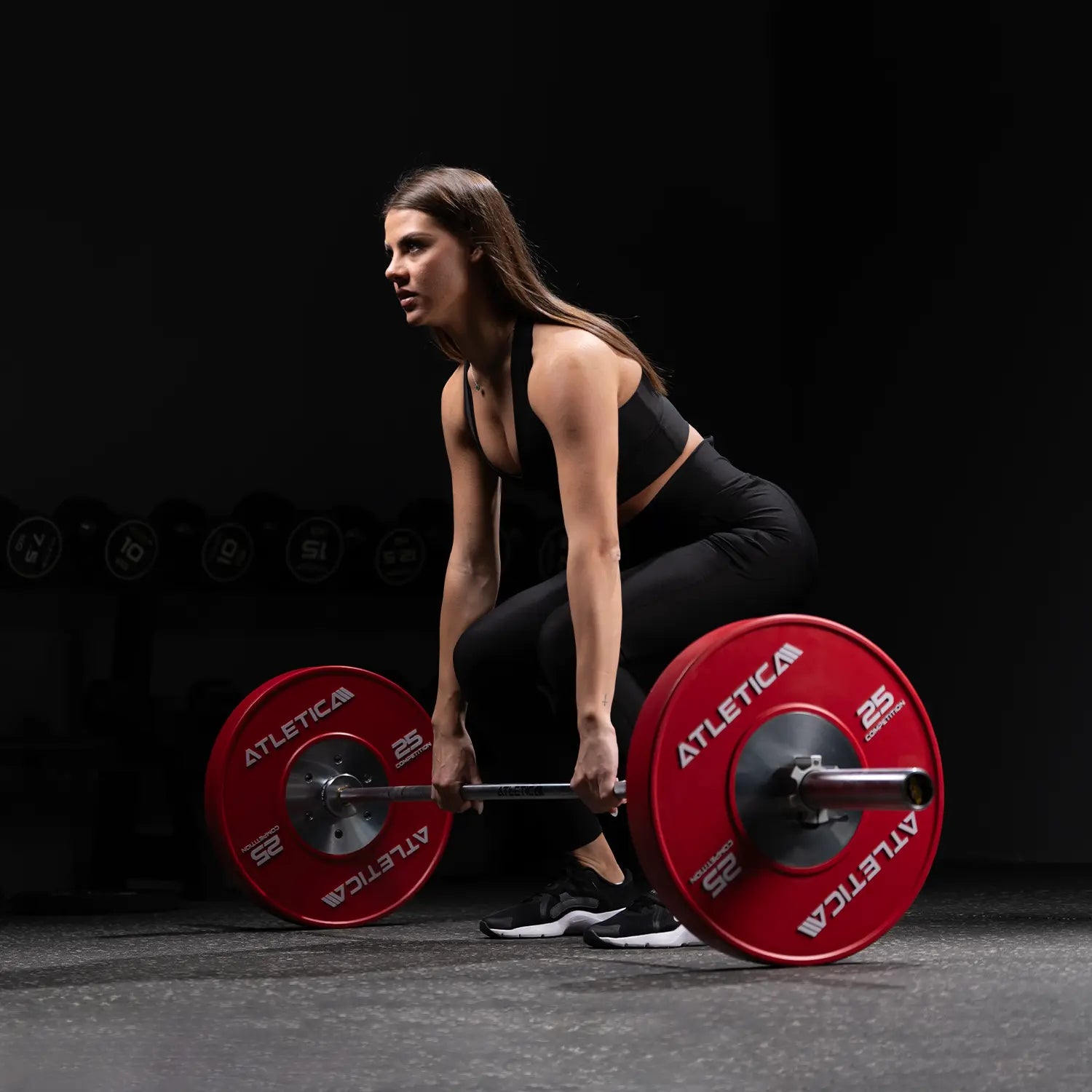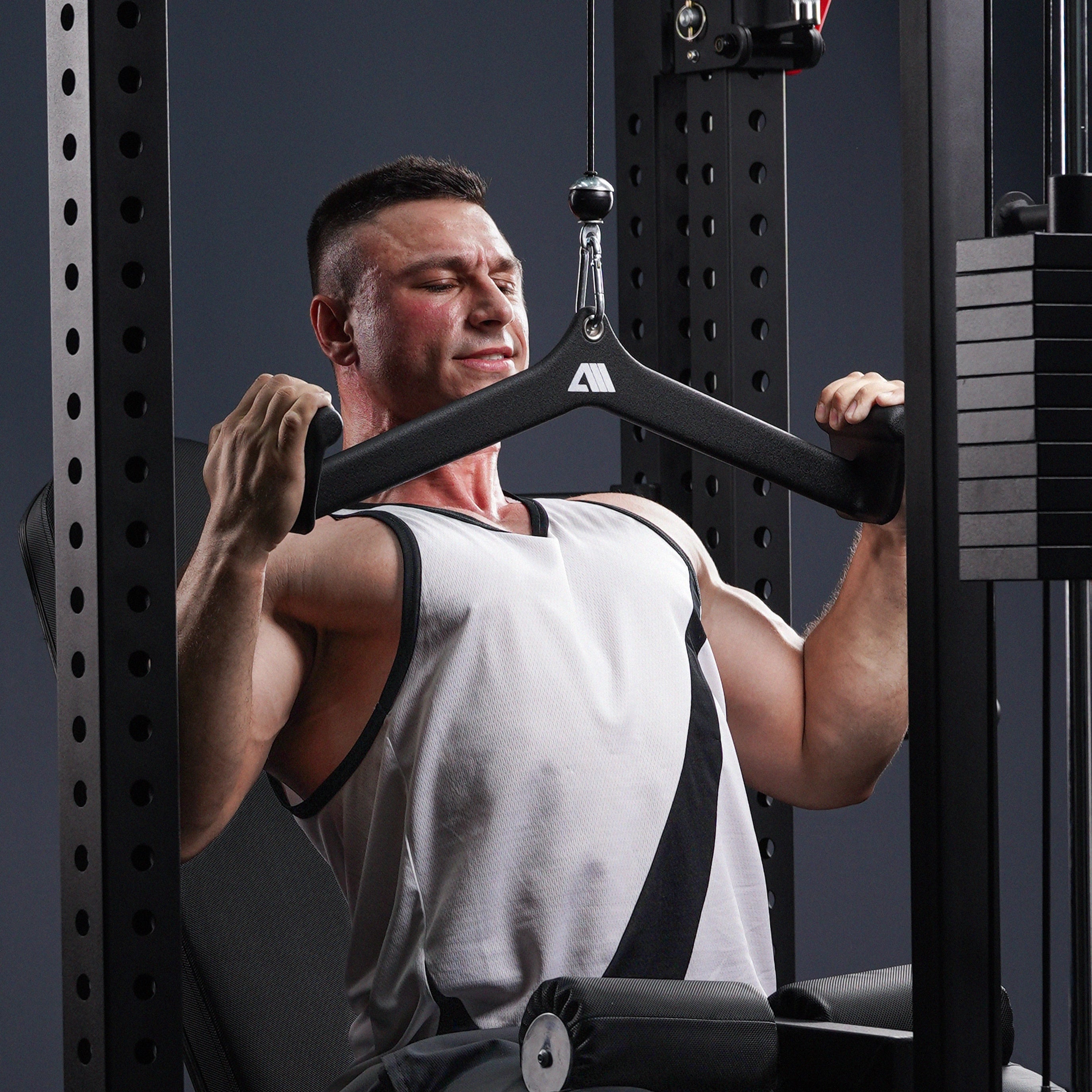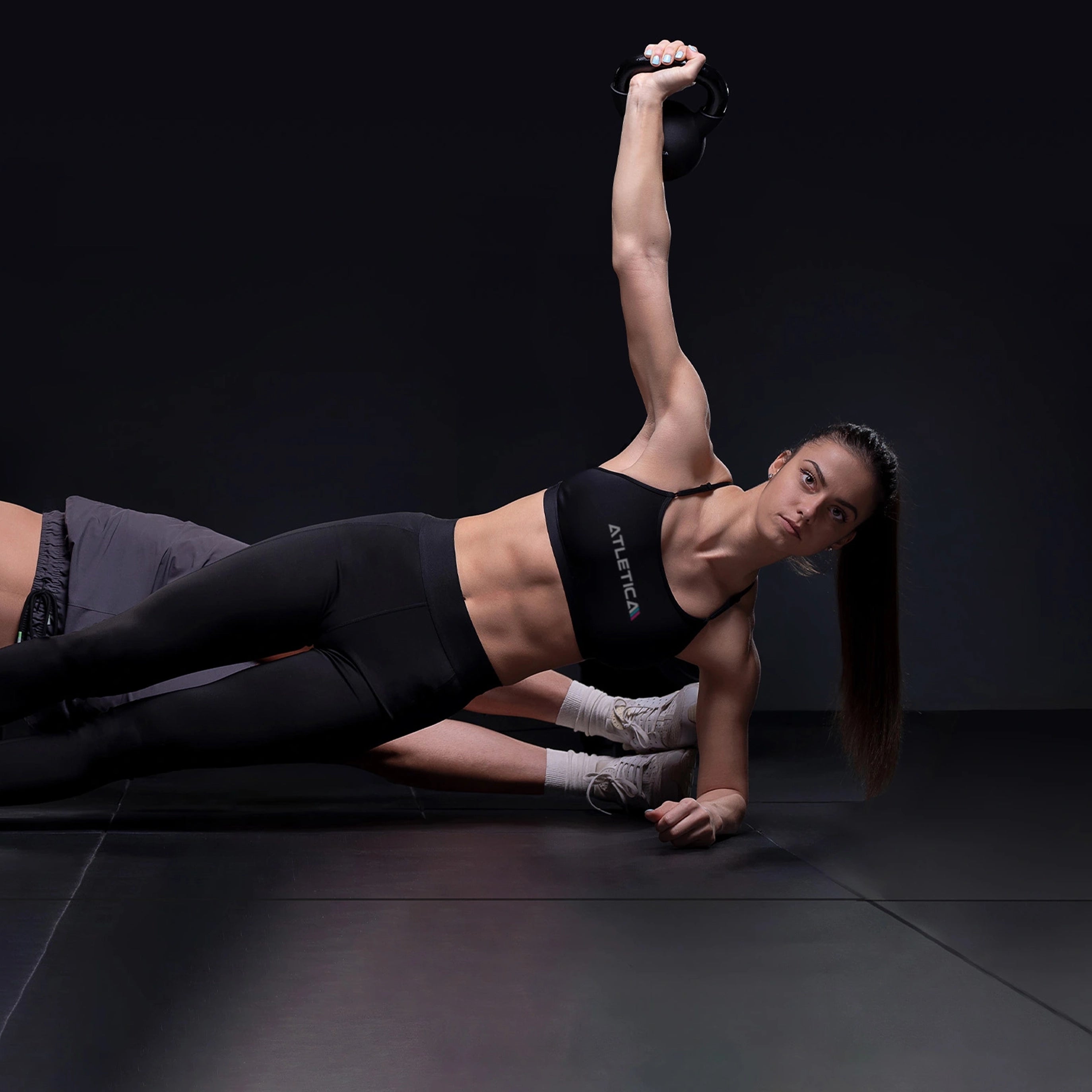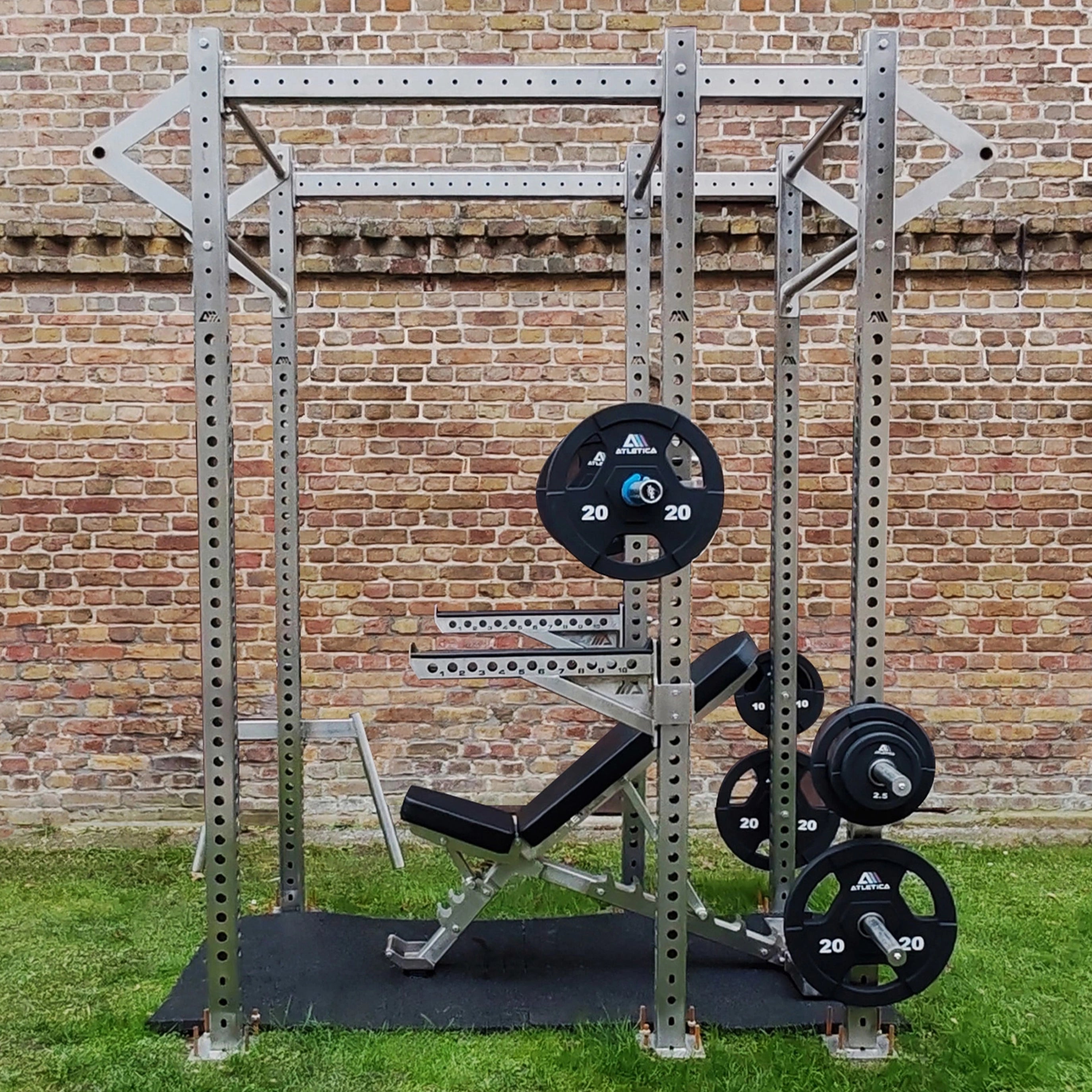Hip pain is a widespread problem and affects people of all ages. Whether due to prolonged sitting, lack of exercise, one-sided strain, or age-related wear and tear – sooner or later , the hips will complain of unpleasant discomfort. The good news: With targeted exercises for hip pain, you can actively combat it and improve your mobility and quality of life. In this article, we'll show you the top 5 exercises for a pain-free body – ergonomic, effective, and suitable for beginners.

1. Why does hip pain occur?
Hip pain can have many causes:
- Lack of exercise or poor posture
- Muscle tension or shortening
- Wear and tear (osteoarthritis, impingement)
- Insufficient strengthening of the surrounding muscles
- Incorrect strain in everyday life or sports
The hip flexors and extensors suffer particularly in people with sedentary jobs or who engage in one-sided exercise. Weak gluteal muscles can also lead to strain in the hip area. Targeted hip training exercises can prevent or effectively alleviate these problems.
2. The best conditions for pain-free hip training
Before you start the exercises:
- Warm up: e.g. with a relaxed 5- minute cardio warm-up on the exercise bike
- Use aids such as a fitness mat, resistance bands or a balance pad
- Pay attention to your posture: no exercise should cause pain
Tip : Atletica 's training equipment , such as resistance bands , exercise mats , balance pads , and dumbbells, is ideal for hip training at home or in your office gym. With the right equipment, even a short workout can be very effective.

3. Top 5 exercises for hip pain
a) The butterfly ( hip opener )
- Sit upright with your feet together
- Pull your heels towards your body, knees fall to the side
- Bend slightly forward, hold for 30 seconds
Effect : Releases tension in the groin, improves hip mobility and stretches the inner thighs.
b) The lunge with hip stretch
- Big step forward, place back knee on the mat
- Push the pelvis slightly forward, torso remains upright
- Hold for 30 seconds per side
Effect : Stretches the hip flexor (iliopsoas muscle) and mobilizes the sacroiliac joint. Especially effective during prolonged sitting.
c) Leg pendulum
- Stand upright, hold on lightly (e.g. to a wall)
- Swing one leg loosely back and forth , mobilizing the hip joint
- 10–15 repetitions per side
Effect : Mobilizes the hip joints, releases blockages and increases mobility.

d) Lateral leg raises while lying down
- Side lying on the mat, lower leg slightly bent
- Lift and lower the upper leg while stretched (slowly!)
- 3 sets of 12 repetitions per side
Effect : Strengthens the abductors, stabilizes the hips and counteracts muscular imbalances.
e ) Glute Bridge
- Lying on your back, feet up, hands beside the body
- Lift pelvis, tighten buttocks, hold briefly, lower
- 3 sets of 15 repetitions
Effect : Activates the buttocks and back muscles, relieves pressure on the hips and promotes a healthy pelvic position.
4. Advanced exercises for advanced students
If you are pain-free and want to continue working on your hip stability , you can incorporate the following exercises:
- Clamshells with mini band
- Step-ups on a plyo box
- One-legged glute bridge
- Deadlifts with dumbbells
- Cable pull - hip abduction

With Atletica equipment such as the Mini Band Set, the Plyo Box or the dumbbells, you can take your training to a professional level.
5. Additional tips for permanently pain - free hips
- Regularity is key : train 2–3 times a week
- Adapt your everyday life: Ergonomic workplace, sitting breaks
- Integrate exercise : e.g. walks , climbing stairs, cycling
- Installing core reinforcement : e.g. B. Planks, Side Planks, Bird Dog
- Fascia training: Release tension with a fascia roller from Atletica
- Barefoot phases : socks off, sensory training
These aspects support not only your hips , but the entire musculoskeletal system.
6. When should you see a doctor?
Not all hip pain can be relieved with exercises. Seek medical advice from:
- sudden , severe pain
- persistent restriction of movement
- Numbness or radiating pain in the legs
- Suspected osteoarthritis, bursitis or impingement
An experienced orthopedist or physiotherapist can help you determine the exact cause and adapt your training to suit your individual needs.

Conclusion: Promote mobility, avoid pain
Hip pain doesn't have to be a permanent condition. With targeted exercises for mobility, strengthening , and stretching, you can actively combat tension, poor posture, or pain. Even a few minutes of training per week can make a noticeable difference.
Use simple tools like mats, bands , fascia rollers, or balance pads from Atletica to make your workouts comfortable and effective. This way, you'll stay flexible, strong, and pain-free – at any age.


